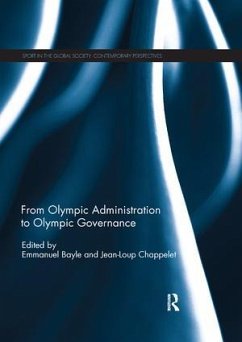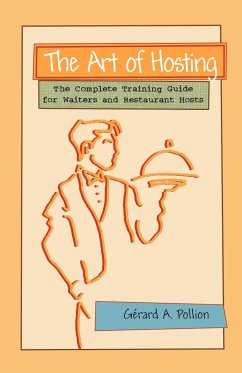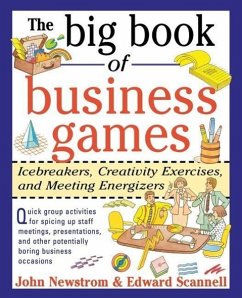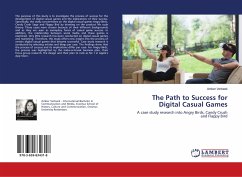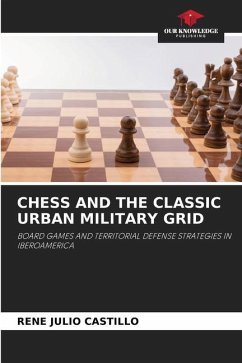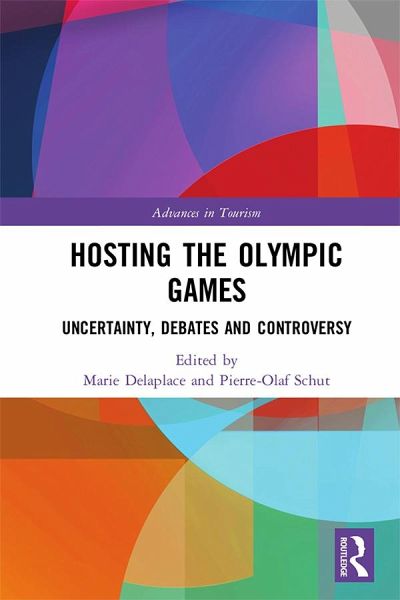
Hosting the Olympic Games
Uncertainty, Debates and Controversy
Herausgeber: Delaplace, Marie; Schut, Pierre-Olaf
Versandkostenfrei!
Versandfertig in 1-2 Wochen
167,99 €
inkl. MwSt.

PAYBACK Punkte
84 °P sammeln!
Hosting the Olympic Games: Uncertainty, Debates and Controversy provides a broad and comprehensive analysis of past Olympic and Paralympic events, shedding critical light on the future of the Games with a specific look at the upcoming Paris 2024 Olympics. It draws attention to the debates and paradox that hosting the Games presents for the contemporary city. Employing a range of interdisciplinary theoretical and methodological approaches, individual chapters highlight the various controversies of the Games throughout the bidding process, the event itself and its aftermath. Social Science-based...
Hosting the Olympic Games: Uncertainty, Debates and Controversy provides a broad and comprehensive analysis of past Olympic and Paralympic events, shedding critical light on the future of the Games with a specific look at the upcoming Paris 2024 Olympics. It draws attention to the debates and paradox that hosting the Games presents for the contemporary city. Employing a range of interdisciplinary theoretical and methodological approaches, individual chapters highlight the various controversies of the Games throughout the bidding process, the event itself and its aftermath. Social Science-based chapters place strong emphasis on the vital importance of sustainable strategy for contemporary host cities. Along with environmental concerns whether atmospheric, microbiological or otherwise, many other requirements, costs and risks involving security and public expenditure among others are explored throughout the book. Including a variety of international and comparative case studies from a range of contributing academics, this will be essential reading for students and researchers in the field of Event studies as well as various disciplines including Tourism, Heritage studies and Urban and Environmental studies.




